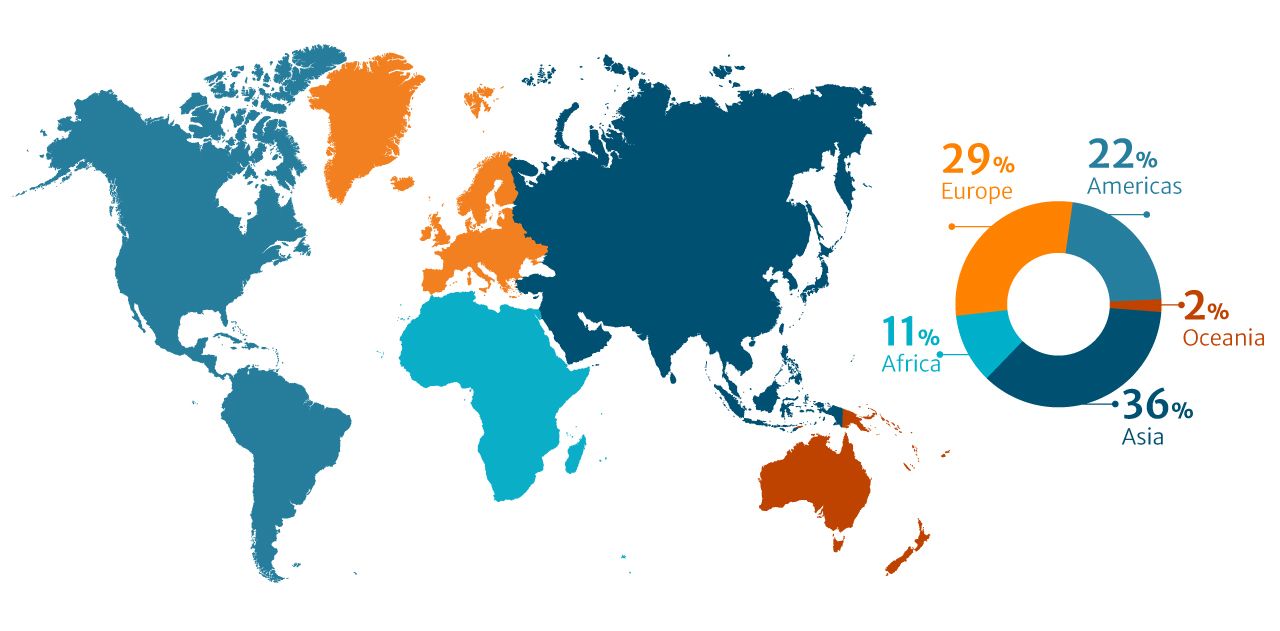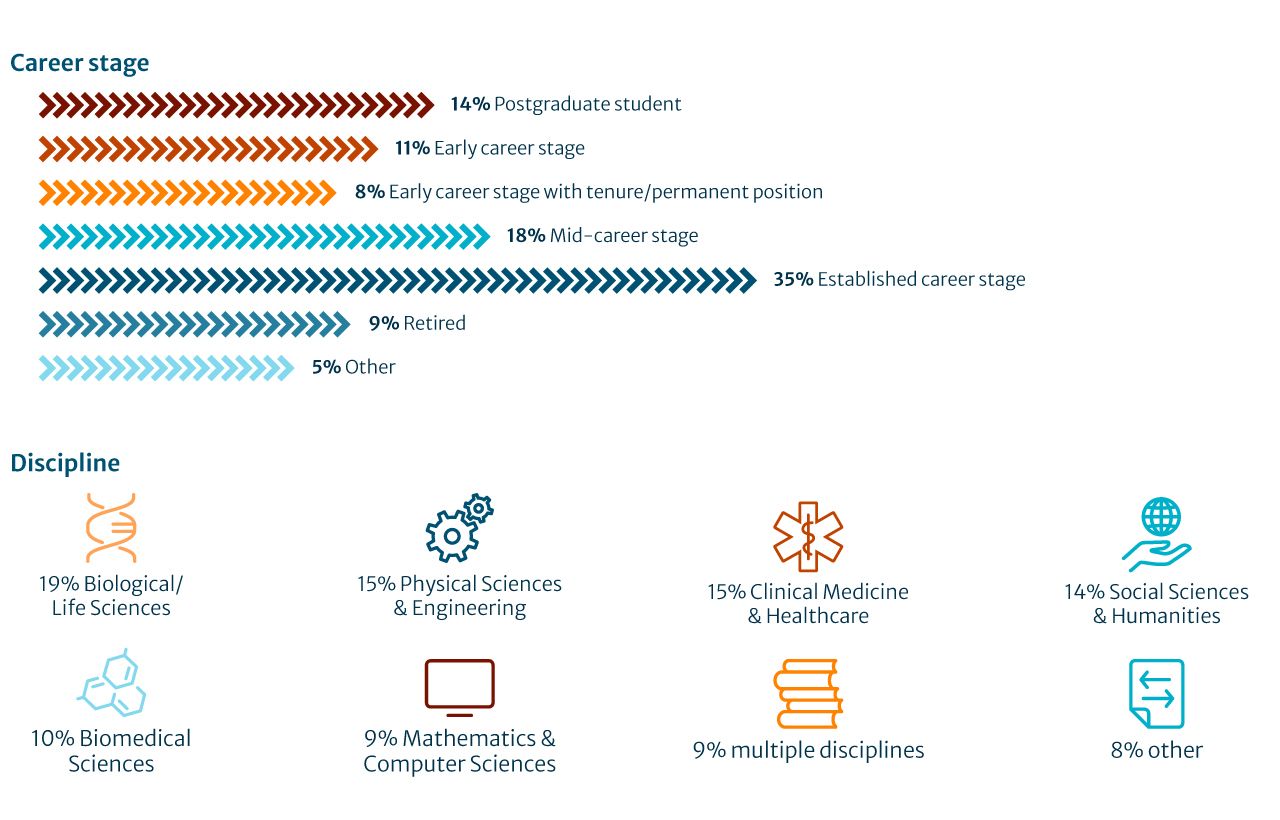Background, aims, and demographics

Over the past decade, the landscape of research assessment has undergone significant scrutiny and transformation. The recognition of the limitations of traditional metrics has prompted a paradigm shift towards more holistic approaches to evaluation – to better recognise researchers' wider activities beyond publications, and the positive contributions their research makes to society.1
Research assessment reform has been discussed at length within the academic community, and there are various initiatives in place to improve the ways researchers and their scholarly outputs are evaluated – including The Leiden Manifesto, The San Francisco Declaration on Research Assessment (DORA), and the Coalition for Advancing Research Assessment (CoARA).2
However, researchers experience evaluation in diverse ways, which not only cover large national assessment exercises but also processes such as grant applications, faculty-level review, and individual career advancement. Practices can also vary quite significantly between different regions or disciplines, institutions and even departments within those institutions.
To gain a better understanding, Springer Nature conducted a survey of researchers, which received over 6,600 responses with diverse geographic, disciplinary and career-stage representation. We asked researchers about:
- How they and their work are currently assessed
- Their attitudes towards assessment practices
- Their views on the future of research assessment
The aim of the results is to inform and engage with ongoing discussions on research assessment reform, and work with our partners to improve existing processes.
About the survey
Methodology
The survey was open online from 7 June – 9 August 2024 and was shared with researchers through a variety of channels including email and social media, with an incentive of a $250 gift card offered through a prize draw. The survey questions were predominantly quantitative, but some questions allowed for free text comments seeking qualitative responses. Not all questions were answered by all respondents; throughout this white paper figures and narrative indicate the number of responses to specific questions.
Definitions
For this study, we defined research assessment as the process by which the quality, impact and significance of research activities are evaluated. This includes both the assessment of individual researchers based on their contributions and achievements, and the assessment of their research outputs.
Throughout the survey, we asked respondents to think about which aspects of their work are considered during assessment processes, categorising these into four areas:
- Research outputs: A researcher’s published work in journals, but also books, datasets and other outputs.
- Contributions to “the public good”, or positive contributions to society: The influence of their work on society, the economy, and the environment beyond academia.
- Wider contributions to research: Other contributions to research and the research community, including carrying out peer review, applying for funding, and organising events.
- Contribution to research culture: Contributions to the behaviours, values, expectations, attitudes and norms of our research communities.
Demographics
6,623 respondents
*10 countries accounted for 55% of responses, with the most represented being India (12%), the USA (10%) and mainland China (9%)
Demographics
- 6,623 respondents.
- Location: 36% Asia; 29% Europe; 22% Americas; 11% Africa; 2% Oceania.
*10 countries accounted for 55% of responses, with the most represented being India (12%), the USA (10%) and mainland China (9%). - Career stage: postgraduate student 14%; early career stage 11%; early career stage with tenure/permanent position 8%; mid-career stage 18%; established career stage 35%; retired 9%; other 5%.
- Discipline: Biological/Life Sciences 19%; Physical Sciences & Engineering 15%; Clinical Medicine & Healthcare 15%; Social Sciences & Humanities 14%; Biomedical Sciences 10%; Mathematics & Computer Sciences 9%; multiple disciplines 9%; other 8%.
The full (anonymised) dataset is available for further analysis

References (Links open in a new window)
1 De Rijcke, S., Cosentino, C., Crewe, R., D’Ippoliti, C., Motala-Timol, S., Rahman, N. B. A., Rovelli, L., Vaux, D., & Yupeng, Y. (2023). The Future of Research Evaluation: A synthesis of current debates and developments. https://doi.org/10.24948/2023.06
2 Curry, S., de Rijcke, S., Hatch, A., Pillay, D., van der Weijden, I., & Wilson, J. (2020). The changing role of funders in responsible research assessment: progress, obstacles and the way ahead. Research on Research Institute. https://doi.org/10.6084/m9.figshare.13227914.v

